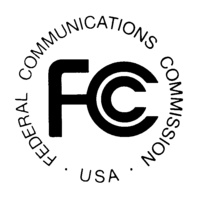 The US Court Of Appeals For The District Of Columbia has ruled that the FCC lacks the authority to enforce network neutrality rules for broadband internet providers.
The US Court Of Appeals For The District Of Columbia has ruled that the FCC lacks the authority to enforce network neutrality rules for broadband internet providers.
Although the court's decision means the FCC doesn't have the authority to punish Comcast for their "network management" practices, their legal problems aren't over yet. In fact it clears the way for lawsuits pending in federal court which have been held up by the question of FCC jurisdiction.
There's also the potential for action by the Federal Trade Commission over alleged false advertising of their service.
What makes things more complicated is that the FCC may still be able to establish jurisdiction over net neutrality by revisiting a 2002 ruling on the nature of internet service. At that time it was determined that broadband internet was merely an information service, and therefore not subject to the same level of regulation as common carrier service like traditional phone lines.
Common carriers are already required to be neutral with respect to content and use of their services. For example, a traditional phone company can't prioritize incoming calls from one provider over another.
But such a ruling would certainly spark a new round of lawsuits, and not just from Comcast. You can be sure that broadband internet providers around the country are opposed to this level of FCC regulation and they actually have some valid points.
Simply put, the issues involved in net neutrality are much more complex than with simple telephone service. They are also much more politically charged.
The FCC Chairman is appointed by the president, and is generally expected to set policy based on the views of the current administration. This often leads to extreme shifts in regulation based on the bias of the sitting President.
The Chairman's own bias can also be problematic. In 2003, under Michael Powell's chairmanship, the FCC took it upon themselves to give broadcasters control over copying of TV programming through the use of the so-called broadcast flag.
Although it was later shot down by the same federal court involved in the net neutrality ruling, and for basically the same reason, it shows what can happen when the FCC oversteps their authority.
There's also some question whether the FCC would have taken action against an internet service provider over P2P throttling had it not been a cable company. The bias against the cable industry by then chairman Kevin Martin has been well documented.
And you don't have to look any further than last year's DTV transition to see the pitfalls of putting public policy in the hands of the FCC without significant oversight.
The FCC was charged with ensuring the smooth transition from analog to digital broadcasting, and essentially given carte blanche authority to handle it as they saw fit. Warnings from the Government Accountability Office, broadcasters, electronics retailers and engineers were all ignored by Chairman Martin, who insisted that everything was fine.
Conveniently, thanks to the transition being scheduled shortly after a new President took office it was already a foregone conclusion he would be gone before it actually happened.
Equally convenient was the silence of other FCC commissioners, who suddenly began criticizing Martin's handling of things with the transition just weeks away. When the date was pushed back due to a lack of consumer preparation they were quick to make him the scapegoat.
Net neutrality is an important issue, and something that merits serious debate and potentially regulation. Do you really want it left to the whims of the FCC?











